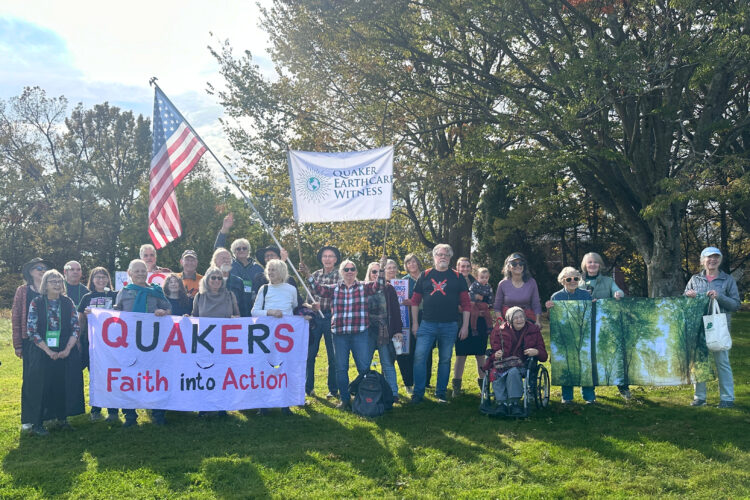Later Will Be Too Late / Plus Tard Ce Sera Trop Tard*

By Shelley Tanenbaum.
In December 2015 world leaders committed their countries to significantly change the ways that they are contributing to global climate change, they agreed to share resources to support countries most vulnerable and most in need, and they pledged to increase their commitment every five years. However, the aspirational goal of limiting global warming to 1.5 degrees C will not be achieved with the current national commitments to reducing greenhouse gasses.
We are at a critical turning point. Science tells us that we have about 10 years to radically reduce anthropogenic greenhouse gasses if we are to come anywhere near the aspirational goal of limiting global warming to 1.5 degrees. Governments, businesses, and individuals have begun a transition to carbon-free emissions, but at a pace that will not allow for preventing catastrophic impacts from climate change and in ways that often inflict harm on the world’s most vulnerable people.
The time to act is now and the place to act is at all levels. We Friends value action in the world more than pious words. For those of us living in energy-intensive developed communities, many of us are committed to lifestyle changes that significantly reduce our individual carbon footprints. However, we must also commit to policy and program changes in government, in business, and in non-governmental organizations because individual actions alone are not enough. Our Quaker values lead us to work toward societal changes that are needed to meet the goal of limiting global warming to 1.5 degrees while respecting the human rights of all individuals and maintaining healthy ecosystems and biodiversity. The alternative is unconscionable—unprecedented migration, more frequent severe weather, massive agricultural failures and resulting famines, extreme fresh-water shortages, increased species extinctions, and deadly conflict triggered by scarce resources.
The FWCC Pisac Sustainability Minute lists multiple ways individuals can move from a high to low carbon footprint (see the March-April 2016 issue of Befriending Creation), and there are numerous lists available that are specific to local environments. Personal lifestyle changes that nearly all of us can choose to enact today include eating less meat and reducing personal air travel.
In the developed world at the institutional level, some immediate changes include transforming our electric grid to all-renewable energy, enhancing our public transportation (local and long distance), and converting to all-electric transportation.
While we are called to act as soon as possible on individual and institutional changes to address climate change, it is even more important to consider the spiritual crisis that has led us to the brink of environmental and economic disaster. Our growth-addicted consumer global economy has failed to meet the needs of the majority of the world’s population and we are already exceeding the earth’s capacity to sustain healthy ecosystems. What is needed is a vision of how we can live in right relationship with earth’s ecosystems while providing basic needs for all of humanity.
What are you and your Meeting called to do? Tell us your story of climate change action, and we will share it to inspire others.
__________
* from a Metro sign during COP21 in Paris

